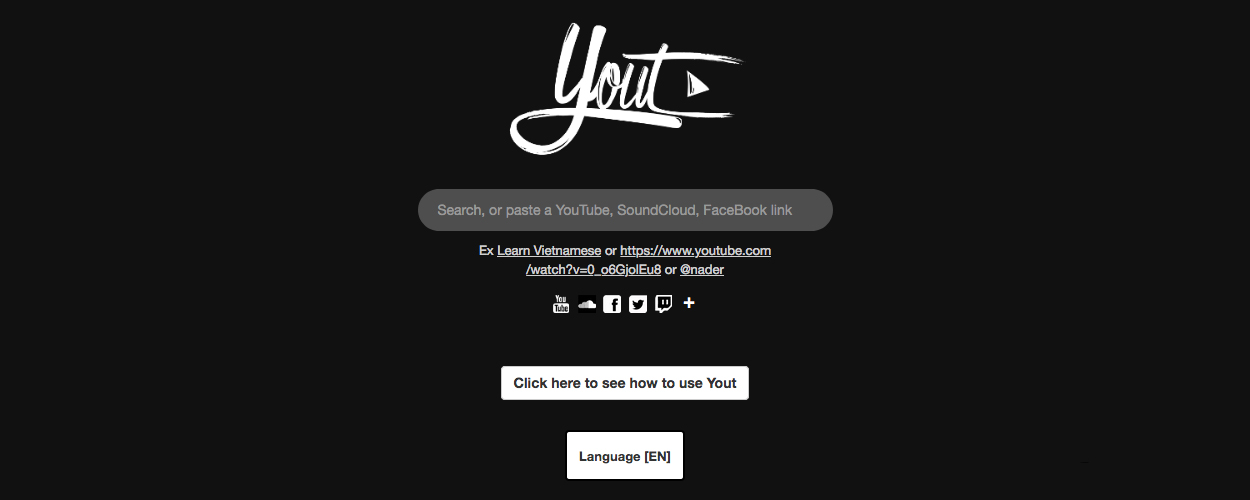This website uses cookies so that we can provide you with the best user experience possible. Cookie information is stored in your browser and performs functions such as recognising you when you return to our website and helping our team to understand which sections of the website you find most interesting and useful.
Business News Digital Labels & Publishers Legal Top Stories
Stream-ripper Yout refiles its lawsuit against the record industry, argues it’s pretty easy to rip from YouTube without its app
By Chris Cooke | Published on Monday 20 September 2021

Stream-ripping site Yout has re-filed its lawsuit against the Recording Industry Association Of America, again setting out its argument that its technology does not circumvent any technological protection measures put in place by YouTube when it helps users to rip audio from the Google-owned video platform.
With stream-ripping services – which allow users to grab permanent downloads of temporary streams – still at the top of the music industry’s piracy gripe list, the RIAA tried to have Yout delisted from the Google search engine.
That request was based on the allegation that Yout had violated the US Digital Millennium Copyright Act by circumventing “YouTube’s rolling cipher, a technical protection measure, that protects [the labels’] works on YouTube from unauthorised copying [and] downloading”.
Such circumvention, the record industry trade group claimed, breached a provision in the DMCA that “prohibits circumventing a technological protection measure put in place by a copyright owner to control access to a copyrighted work”.
However, Yout hit back by suing the RIAA. The record industry trade group had misrepresented its service when trying to get Google to delist its website, the stream-ripping set up argued. And in doing so, the RIAA had damaged its entirely legitimate business.
The case really centres on the complexities of how YouTube works, and whether elements of the YouTube system which – in the eyes of the labels, at least in part exist to stop stream-ripping – actually constitute one of the “technological protection measures” mentioned in the DMCA.
A subsequent back and forth about those complexities between the RIAA and Yout became, well, somewhat complex. Then, in August, the RIAA successfully got Yout’s lawsuit dismissed. However, the Electronic Frontier Foundation, supporting Yout, said the dismissal was a mere technicality. So complex had subsequent submissions by the RIAA and Yout become, it was better to dismiss the case and allow Yout to start over with an amended complaint.
It’s that amended complaint that has now been filed. The core arguments remain the same, though Yout will be hoping that it states it case more clearly this time, while also anticipating all of the RIAA’s counter-arguments.
At the heart of Yout’s lawsuit is the claim is that it’s actually pretty easy to download video or audio files from YouTube using the developer tools in the Chrome browser – indeed the lawsuit itself includes a twelve step guide to doing just that, and links to some online articles containing similar guides. Therefore, it adds, its technology isn’t circumventing any cleaner content protection technology, it is just simplifying a process that anyone can do via a browser window.
“Yout’s software platform enables a person to complete the process described above, but in fewer steps”, the counter claim states. “Contrary to defendants’ allegations, Yout’s software platform is not designed to descramble, decrypt, avoid, bypass, remove, deactivate, or impair any technical protection measure or any technological measure that effectively controls access to a work protected by the Copyright Act”.
It adds: “In fact, any digital mechanism in place designed as anti-circumvention technology stops Yout users from recording and saving that protected work, thereby demonstrating Yout’s compliance with any anti-circumvention protections in place … the ‘rolling cipher’ mechanism that the RIAA argues is employed by YouTube does not prevent copying of videos or other digital media. [in fact] the term ‘rolling cipher’ is a misnomer and a term likely coined and relied upon by Defendants to argue that services like Yout are somehow breaching a protection that doesn’t exist”.
“The ‘rolling cipher’ mechanism that the RIAA argues is employed by YouTube does not prevent copying of videos or other digital media”, it goes on. “[In fact] the term ‘rolling cipher’ is a misnomer and a term likely coined and relied upon by defendants to argue that services like Yout are somehow breaching a protection that doesn’t exist”.
In the middle of all that, Yout also adds the usual argument in cases like this, which is that while some of its users might use its software to gain copies of recordings illegally, it also has entirely legitimate uses. “Many content creators use Yout’s service to record their own original videos”, it argues, “further, many content creators encourage their audience and fans to use Yout to record and play back their original content”.
It remains to be seen how the RIAA now responds. It previously urged the court to dismiss the original lawsuit with prejudice, which would have prevented Yout from presented amended arguments, the labels claiming that any such future arguments would still be “futile” and therefore a waste of everyone’s time.





